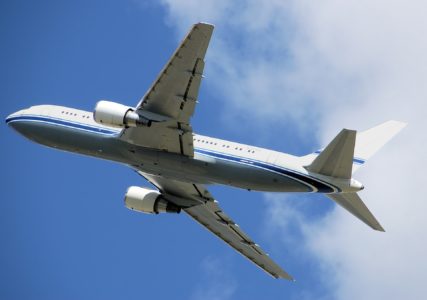
How do you compensate employees who are working overseas? And, how do you pay for their international travel time? Let’s consider a hypothetical: an employee takes a 16-hour flight from Nashville to China. Because of changing time zones, he leaves at 4:00 a.m. on a Sunday and arrives at 11:00 p.m. on a Monday. International travel can cause difficulties in complying with wage and hour laws.
1. The FLSA Does Not Apply to Work in a Foreign Country
From a purely legal perspective, the Fair Labor Standards Act (“FLSA”) does not apply to employees whose services are performed in a workplace in a foreign country. 9 U.S.C. § 213(f). Thus, if an employer really wants to be a jerk, it can argue that it is not required to pay overtime (or even minimum wage) for work overseas. I strongly advise against this heavy-handed approach because of employee morale, and the possibility of subjecting yourself to foreign wage and hour laws. In short, you don’t have to pay overtime for work in China, but you probably should pay it. Notably, many U.S. territories, like Puerto Rico and the Virgin Islands, as well as Kwajalein Atoll (frequented by many Huntsvillians) are not considered foreign countries.
2. The FLSA Does Apply if the Employee Works Part of the Week in the U.S.
There is always an exception to almost any rule. According to the United States Department of Labor, an employee who works any part of a week in the United States is covered by the FLSA, even if he or she spends part of the week working overseas. See DOL Wage & Hour Opinion Letter #1563 WH-510 (Jun. 29, 1981). Thus, even if an employer wants to take the heavy-handed approach, it will be required to pay overtime for work in China if the employee performs any work in the U.S. during the same week. On this issue, employers should be mindful of their declared work week. Let’s assume that my hypothetical employer’s work week is Sunday to Saturday. As discussed below, time traveling can be compensable. Because part of the travel occurred in the U.S., all work in China during the week of travel would be subject to the FLSA’s overtime requirements.
3. Time in the Air May Be Compensable
The issue of pay for time-in-the-air is also a difficult one. First, employees are entitled to pay for any time actually worked in international travel. So, if the employee works on his computer for the entire 16-hour flight, then he is entitled to be paid for 16 hours of work. But, what if he just kicks-back and watches movies for the entire flight?
The DOL considers travel away from home to be compensable “when it cuts across the employee’s workday.” 29 C.F.R. 785.39. Thus, if your employee normally works 8:00 to 5:00, he or she is entitled to pay while flying, even if just watching movies, from 8:00 to 5:00. Importantly, even if the travel occurs on a Saturday or Sunday, pay would required from 8:00 to 5:00. The DOL does not consider time on a plane to be compensable if it occurs outside of regular working hours. So, time in the air before 8:00 and after 5:00 would not be compensable.
Happy travels to all!